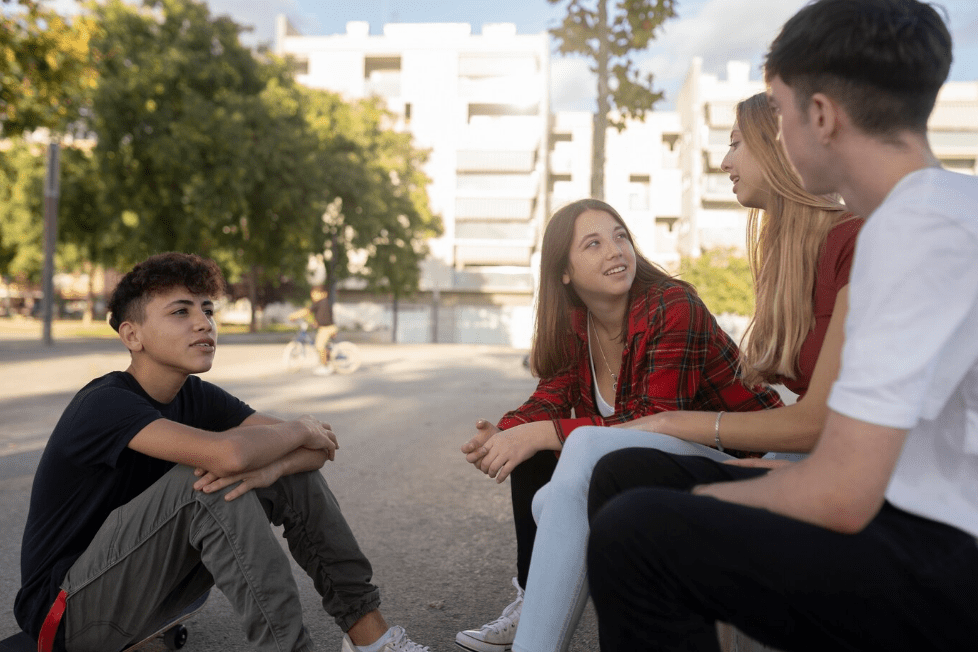Schools in Nellore, promote education which paves the way for a brighter future, with institutions focused on not just academic learning but also the cradles of personal development and social change. Adolescence is a crucial phase in a young person’s life, where they embark on a journey of self-discovery and social integration. In this transformative period, extracurricular activities play a pivotal role in shaping the lives of students, helping them become more successful and socially strong adults.
Extracurricular activities encompass a wide range of options, including sports, music, debate, dance, drama, and social services. These activities are not components of the academic curriculum but are integral to the educational environment. While their benefits are multifaceted, one of their most significant impacts is the social changes in adolescence. Let’s explore how schools in Nellore and beyond are harnessing the power of extracurricular activities to facilitate these changes.
Also read: How can Teachers help Children with Emotional Changes in Adolescence
A Multifaceted Approach in Nurturing Adolescents
Schools in Nellore recognize that education goes beyond textbooks and classrooms. Extracurricular activities provide students with a platform to channel their energy into positive directions, transcending physical challenges, and normalizing the development of a well-rounded personality. These activities offer a unique space for students to learn essential life skills, think critically, and manage their time efficiently.

The Role of Extracurricular Activities on Social Changes in Adolescents
Extracurricular activities play a vital role in honing the skills of students. Engaging in these activities encourages students to think critically and manage their time effectively. Through participation in these activities, students learn to balance academic responsibilities with their extracurricular pursuits, fostering a sense of discipline and time management that will serve them well in adulthood.
Achieving Social Goals and Maturity
Adolescence is a time when individuals are trying to find their place in the world, both academically and socially. Extracurricular activities help students achieve their social goals and foster personal maturity. The collaborative nature of team sports, the creative expression in the arts, and the opportunity to engage in social services all contribute to the development of valuable social skills.
Participating in these activities provides adolescents with a sense of belonging, allowing them to interact and build better relationships with peers and the community. Schools in Tirupati, a city known for its educational institutions, have also embraced the idea that extracurricular activities foster social integration and personal growth.
The Positive Effects of Extracurricular Activities
Research indicates that extracurricular activities have a positive impact on education. Students who actively participate in these activities tend to exhibit better behavior and achieve higher grades. These activities also contribute to personality development, equipping students with the tools they need to succeed as adults.
Extracurricular activities serve as a bridge between the formal curriculum and the real world. They provide students with opportunities to apply the knowledge they have acquired in the classroom to practical situations, instilling in them important life concepts and a sense of democratic values.
Challenges and the Need for Extracurricular Activities
While the benefits of extracurricular activities are clear, the economic challenges facing schools in our country have led to budget cuts and reductions in teacher workforces. In many instances, non-essential activities, including extracurricular programs, have been eliminated.
However, it is essential to recognize that these activities are not just optional extras but vital components of a holistic education.
The demand for extracurricular activities remains high, especially in schools in Tirupati, where parents and students understand the profound impact these activities can have on social development during adolescence. As educators and community members, we must work together to ensure that students continue to have access to these valuable experiences.
Conclusion
In the evolving landscape of education in Nellore and Tirupati, extracurricular activities stand as pillars of support for adolescents. They offer a diverse range of opportunities for students to learn, grow, and integrate into society. The impact of these activities on social changes during adolescence is profound, fostering better behavior, improved grades, and enhanced personality development.
As we navigate the challenges of today’s educational environment, it is crucial to recognize that extracurricular activities are not just nice-to-haves but essential components of a well-rounded education.
By providing students with the means to explore their interests and develop vital life skills, schools in Nellore and Tirupati are shaping the leaders of tomorrow who will go on to effect positive social changes in their communities and beyond.


